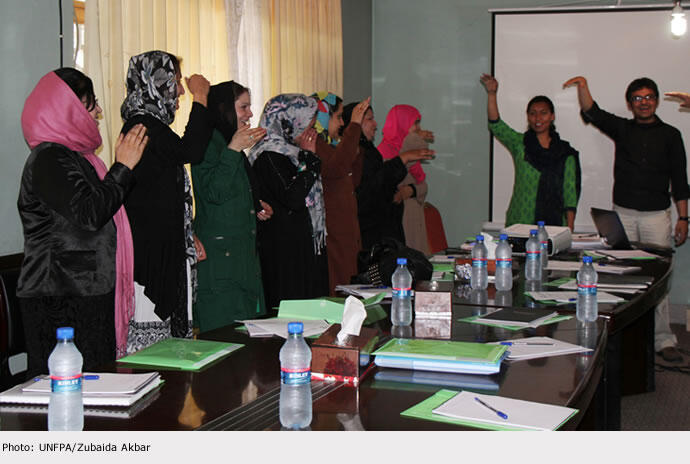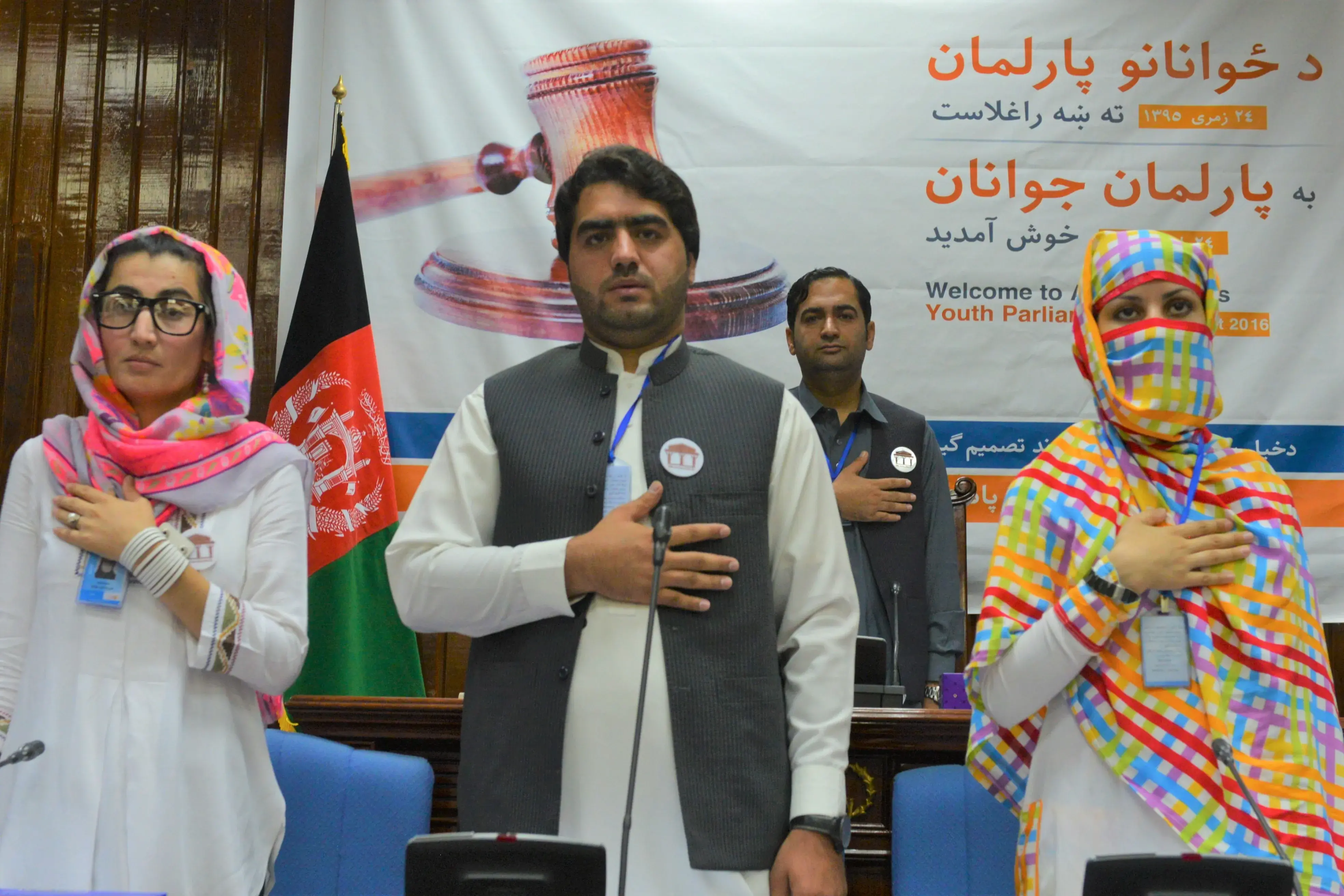A team of Y-Peer network visited Kabul to train the Deputy Ministry of Youth Affairs Youth Information Centers staff on how to mobilize young people. The training took place in April 2012 thanks to the UNFPA Implementing Partner AFGA.
Y-Peer is a volunteer global network in 48 countries and over 500 youth organizations around the world. The main goal of Y-Peer is to advocate for sexual and reproductive rights and helping youth build healthy behaviors and life styles.
"We are training these peer educators on how to transfer information to other youth in a way that they will be able to absorb and use it. We will talk about best learning methodologies for youth, information sharing with youth, the perceptions on sexual and reproductive health, attitudes and values of youth and working together with youth as adults and supporting them" - said Shubha Kayastha, the international coordinator in charge of advocacy for Y-Peer, during the 5 days training in Afghanistan.
Young Afghan from Herat, Jalalabad, Mazar and Kabul participated in the training with the vision to train these participants as trainers to youth in their provinces.
Y-Peer is a network that does not exclude anyone and is easily access able to youth from all different backgrounds. For example in Pakistan Y-Peer has been working with educated and illiterate youth, transgender and commercial sex workers.
"There are cultural similarities in Afghanistan and Pakistan. And in Pakistan we have been successful working with youth in this regard. There are misconceptions and misperceptions about issues related to sexual and reproductive health but these issues can be tackled when we work through local organizations", said Muhammad Shahzad Khan National Focal Point and founder for Y-Peer in Pakistan.
According to Feriba Hosham, Program Manager in Adolescent Health/HIV unit of AFGA, working with youth in Afghanistan can be very difficult because they are very sensitive about their privacy and confidentiality of the information they share with others. "Youth dislike to be judged about their life style and behaviors. The training will help our trainers understand exactly how to approach a young woman or man and train him on this very sensitive issue of reproductive health", said Feriba.
The training is tackling sexual and reproductive rights from a scientific perspective not from a cultural or religious perspective. "This is a very new approach for Afghanistan", added Feriba who also expressed her wiliness to adapt the training to Afghan culture and beliefs.
Some of the participants initially shared Feriba concern. By the end of the training there was a general appreciation: "It is always easier for youth to approach other youth and communicate with them. This is a great opportunity to learn how to do that. The methods they are using to train us are also very interesting, specially the games and exercises", declared Noria, Head of Youth Information Center in Jalalabad.
UNFPA's youth initiatives support the need to educate and empower Afghan youth and bring them to the forefront of decision-making, for development that is relevant and realistic, and that taps on the human capital of the largest section of the country's population



